| |
|
THE POLITICAL GROTTO
Surrogates for Clinton and Obama debate for the affection of Ohio Jewish voters
By Gary Rotto
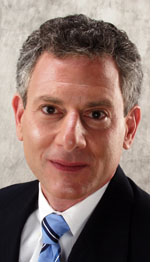 SAN DIEGO—Two percent. At most, that is the size of the Jewish electorate in Ohio. From the attention that both Senator Hillary Clinton and Senator Barack Obama are paying to the Jewish community in Ohio, you would think that the Jewish vote would be the size of those in New York or Los Angeles. According to Joyce Garver Keller, Executive Director of Ohio Jewish Communities, there are no more than 150,000 registered voters in the Jewish communities of Ohio out of 7.6 million voters. The Jewish community, “really is a true minority in the State of Ohio because our numbers are so small,” stated Keller. SAN DIEGO—Two percent. At most, that is the size of the Jewish electorate in Ohio. From the attention that both Senator Hillary Clinton and Senator Barack Obama are paying to the Jewish community in Ohio, you would think that the Jewish vote would be the size of those in New York or Los Angeles. According to Joyce Garver Keller, Executive Director of Ohio Jewish Communities, there are no more than 150,000 registered voters in the Jewish communities of Ohio out of 7.6 million voters. The Jewish community, “really is a true minority in the State of Ohio because our numbers are so small,” stated Keller.
Clearly, both campaigns expect that the vote in Ohio will be very, very close. “We expect very close elections in Ohio and Texas and these communities – large and small – will be important,"’ stated Democratic Congressman Adam Schiff of California, a surrogate for Senator Obama. The Los Angeles Democrat was crisscrossing Ohio on the day before these crucial primaries, spending the morning in Cleveland, the afternoon in Columbus and the evening in Cincinnati.
Schiff was joined in Cleveland on Sunday by Congressman Anthony Weiner (Democrat, New York), who spoke in behalf of Senator Clinton. According to Michael Bennett, publisher of the Cleveland Jewish News, over 300 people attended the forum sponsored by his newspaper and the Israel Project at suburban Beechwood High School. “Like the rest of the Jewish community, the Cleveland community is overwhelmingly Democratic though there is a substantial Republican constituency,” stated Bennett.
“If I had to weigh the audience, Congressman Weiner got more applause that Congressman Schiff,” opined Bennett. Many in the audience sported Hillary buttons – in Hebrew. Fewer wore Obama campaign buttons on their lapels. He noted that this is not necessarily indicative of how the Cleveland Jewish community would be voting but could be a result of which campaign better organized its Jewish supporters to attend the forum. As far as content, no new ground was broken.
Bennett said of the two surrogates: “If their candidate loses they would fully support” the eventual victor, As reported by observers like Bennett, the exchange between the two campaigns was quite cordial and straightforward. The individual exchanges between supporters and the congressmen after the event seemed more passionate as supporters attempted to convince the congressmen of their reasons for supporting the other candidate.
Schiff said that four things about Senator Obama resonated with the audience and with the voters in the Jewish community, “He is a stalwart supporter of Israel with a 100% pro-Israel voting record. People are really tired of the aged old bitterly partisan tearing down of the other sides in politics. He is interested in issues wholly separate and apart from foreign affairs. And Senator Obama breaks down religious and ethic lines to bring people together with a priority to restore the historic relations between Blacks and Jews.” To emphasize his point, Schiff noted that on Martin Luther King’s Birthday, Senator Obama spoke out against anti-Semitism in the African-American community while at Ebenezer Baptist Church.
The congressman noted that he got to know Senator Obama while working on foreign affairs issues. Specifically, the two worked on non-nuclear proliferation language in the Foreign Operations bill. “I was impressed with his understanding of the issues,” statedSchiff. “Senator Obama and Senator Lugar have worked hand in hand to increase non-proliferation and I have enjoyed working with him as well.”
While both campaigns have been visible in the Jewish community of Cleveland, Senator Obama has personally been engaged, speaking to a group of 100 Cleveland Jewish leaders just a few weeks ago.
While Congressman Schiff continued crisscrossing Ohio, Congressman Weiner was dispatched to Beaumont, Texas, to aid the campaign on the final day before the election. “I’m wearing the same suit as I wore in New Hampshire,” stated the representative from Brooklyn. Clearly, the Clinton campaign regards Congressman Weinier as a sort of “good luck” charm, a hamsah that will hopefully bring good luck on Primary Day.
The Congressman said that Senator Clinton believes that there is no room to for compromise on key issues regarding a Middle East peace. “This is not a lot of compromise on dividing Jerusalem,” he stated affirming that Jerusalem will remain largely if not totally in the control of Israel. Congressman Weiner, while complimentary of Senator Obama, questioned his position on foreign relations. "Senator Obama has made great hay in saying that he would meet with leaders that Senator Clinton would not," Weiner said. He suggested that if Obama would meet with President Ahmadinejad of Iran, then "meeting with Hamas would not be off the table.” Come the election, opined Weiner, Jewish voters would support Senator Clinton,” due to her long years of service on issues involving the safety and security of Israel.”
Referring to the forum with two members of Congress and the meeting of Senator Obama with Jewish leaders, Keller noted that, “three or four years ago, these would have been high dollar events. Probably about $500 to attend an event with a surrogate and $2500 for an event where the candidate himself appeared.” This change underscores the closeness and importance of the Ohio and Texas primaries. While Primary- eve polls reported Senator Clinton restoring a solid 9 to 12 point lead in OHio, Texas polls show the race in the Lone Star State to be a dead heat. And the Ohio turnout could be affected by a major winter storm racing into the Buckeye State.
“Congressman Schiff and I are in agreement that either candidate, Senator Clinton or Senator Obama, on their worst day is better than Senator McCain on his best day,” said Weiner. Despite the intensity and acrimony of the campaign, clearing, both surrogates see an easy joining of hands once a Democratic nominee is selected.
Beth Israel event focuses on auto emissions
By Marissa Palin
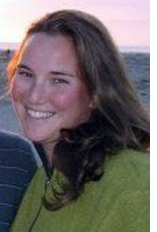 SAN DIEGO “Pondering the intrinsic mutuality of life on earth, one cannot but wonder at the discordant anomaly that has so recently intruded upon nature’s pluralistic harmony: how did one species gain such overwhelming dominance over so many others, indeed over the very processes that control all life? And how could the members of this clever species fail so utterly and for so long to realize the dire consequences of their carelessly exercised dominance?” Rabbi Michael Berk of Congregation Beth Israel read this quote by Daniel Hillel at the congregation's 2nd annual environmental event on Sunday, March 2. SAN DIEGO “Pondering the intrinsic mutuality of life on earth, one cannot but wonder at the discordant anomaly that has so recently intruded upon nature’s pluralistic harmony: how did one species gain such overwhelming dominance over so many others, indeed over the very processes that control all life? And how could the members of this clever species fail so utterly and for so long to realize the dire consequences of their carelessly exercised dominance?” Rabbi Michael Berk of Congregation Beth Israel read this quote by Daniel Hillel at the congregation's 2nd annual environmental event on Sunday, March 2.
The event began with a video “Who Killed the Electric Car?” written and produced by Chris Pane. The 105- minute documentary explores the creation, short lifespan, and ultimate destruction of the electric vehicle. The film uses humor (including a photo reading “What would Jesus Drive” that received considerable audience applause) along with solemnity leaving viewers feeling frustrated, yet motivated to act. Too many times our frightened politicians have chosen protecting our large corporations and industries over the one thing that makes them possible in the first place: our planet. For those who have not seen the film, I highly recommend renting it.
If the film did not leave the audience feeling motivated, then Rabbi Berk’s short speech preceding the panel discussion certainly did. Rabbi Berk pointed out that the story of creation actually consists of two different accounts, in two different chapters. In the first account, the one widely focused upon today, G-d creates humanity and gives man a blessing to be fruitful and multiply, and rule over the earth. But in the second account in the second chapter of Genesis G-d forms humanity out of the soil of the earth and puts man in charge of “serving and preserving” the Garden of Eden. By doing this, G-d was giving man the responsibility to nurture and protect the earth.
Assemblywoman Lori Saldaña led off the panel discussion following the documentary. Familiar with the call we Jews feel to ethical responsibility, the assemblywoman said that saving our planet is embedded in the concept of tikkun olam, the reapir of the world. She said that we are seeing frightening changes in our planet today. Water resources are decreasing, more and more species are becoming extinct, and our global climate is changing every day, to name just a few. Rather than working to fix these problems, according to Saldaña, law makers actuallyhave moved us in the opposite direction in the last eight years. She spoke hopefully of January 20, 2009, when American’s next president will have the opportunity to make vital changes.
David Schumacher, principal transportation planner for the City of San Diego, presented the audience with another problem: freeway congestion. By the year 2030 San Diego is expected to have one million new residents. If our rate of vehicles driven remains the same, to accommodate that amount of growth San Diego will need 6-11 new eight-lane freeways that would undoubtedly be built through environmentally sensitive areas and neighborhoods. To accommodate that amount of growth in parking structures, San Diego would need to pave the equivalent of the entire City of La Mesa, Mission Bay Park, San Diego Bay, and build a two-story parking lot over all of Balboa Park. Schumacher called this problem the Paradox of Automotive Mobility, Schumacher’s department is working towards creating a safe, fast and comfortable transit system, in dense walking-friendly environments.
Gregory M. Newhouse, director of the Advanced Transportation Technology & Energy Center at San Diego Miramar College, also presented the audience with alternative means of transportation— alternatively fueled vehicles. According to Newhouse, hybrid vehicles are a great way to transition into green vehicles, but are only cost efficient depending on your daily route and amount of travel. He presented the Honda Civic that runs on natural gas, voted the “greenest vehicle” five years running. But his heart was set on Biodiesel, which is cleaner, cheaper, and easy to do. He provided the audience with some everyday fuel-saving driving tips:
• For every 5 mph over 60 you drive, the result is the equivalent of adding $.21 to each gallon of gas you purchase. So save gas by slowing down! Purchase tires from Costco and have them filled with nitrogen rather than oxygen, which will help them last longer.
• Be sure to keep your tires properly inflated.
• Remove any excess weight from your trunk to ensure better gas mileage.
• Stay out of accidents
•Keep your eye out for the new Plug-In Hybrid vehicles appearing on the market by 2009 or 2010!
The final panelist was Irene Stillings, executive director of the California Center for Sustainable Energy. Stillings began by giving her own definition of sustainability, one that received a large cheer from the audience: Living and working as though you really believe there is a tomorrow. Stillings challenged anyone in the audience to argue our past practices of resource utilization are sustainable. Our earth simply can not support our growing population at our current rates of resource utilization. Although California is a front-runner in meeting our country’s environmental needs, it is still the 12th largest emitter of greenhouse gasses in the world. The California Center for Sustainable Energy gives away more than $45 million a year in rebates for people and companies who turn towards alternative sources of energy and fuel, including a $3000 rebate for individuals who purchase the Natural Gas Honda Civic. For a complete list of rebates and energy saving tips visit www.energycenter.org.
Following the panel discussion, I moseyed down to the CBI parking lot along with the other more than 100 community members who gave up their Sunday morning for environmental awareness. After touring an electric vehicle car show and an area for free recycling of electronics, I left with my free compact fluorescent light bulb feeling determined, hopeful, and proud of the San Diego Jewish community. Mazel Tov Congregation Beth Israel!
For those who were unable to attend, here are some ways you can make a difference: shut off lights, computers, and unplug appliances; use a drying rack instead of a dryer; wash your laundry in cold water; plant trees; flex your hours at work so you drive during non-peak hours; bundle your errands into one trip; print on both sides of the paper; and most importantly, support and encourage our legislatirs to take actions to reduce greenhouse gasses. In the words of Irene Stillings, “Folks, now is the time to take action. If you don’t do it, who in the world will?”
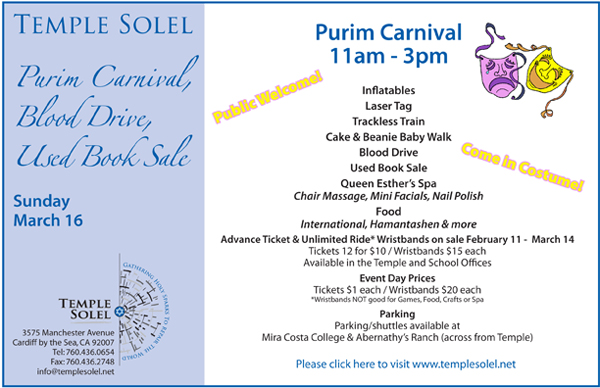


REFLECTIONS
Kaballah book helps open ears to the Voice
20-Minute Kaballah: The Daily Personal Practice That Brings You to God, Your Soul-knowing, and Your Heart's Desires by Rabbi Wayne Dosick, PhD and Ellen Kaufman Dosick, MSW; Waterside Publishing, 181 Pages, $28.
By Sheila Orysiek
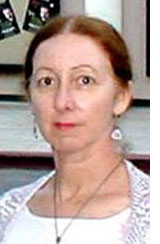 SAN DIEGO--Initially I was hesitant to begin the journey of this book into a subject of which I had curiosity but no knowledge, however, I was immediately beguiled by the elegance of the invitation on its first pages: SAN DIEGO--Initially I was hesitant to begin the journey of this book into a subject of which I had curiosity but no knowledge, however, I was immediately beguiled by the elegance of the invitation on its first pages:
“Moses stood at the bush. The bush burned, but was not consumed. And from out of the fire, Moses heard the ever-echoing Eternal Voice.
We, too, stand at the bush. But, for us, it seems to be just a bush. Where is the flicker? Where is the flame? Where is he Voice calling out to us, enveloping us?”
Surely there are few people spiritually engaged who haven’t wondered how to kindle the ordinary bush to a non-consuming flame and hear the Voice. The authors, Rabbi Wayne Dosick, Ph.D. and Ellen Kaufman Dosick, MSW, of the Elijah Minyan in Carlsbad, California, open up the possibility of entering a world beyond the realm of a mind living alone in its own universe; with the invitation to join them, to join G-D, on another plane.
The first several pages of 20 Minute Kabbalah present in cognitive order the “big” questions most thoughtful people ask: who, what, where and why - of the “I” and the world which surrounds the “I.” Written for a reader professing any faith, the book is a pathway, and while a particular pathway (Judaism) is presented and explored, it is not a one-religion only journey - anyone can take it. The yearning of the human heart and spirit to know its Maker is not limited to any one theology.
After setting out the over arching queries and goals, the next several pages present a brief history of Kabbalah. To overcome any residual hesitation, a gentle, welcoming and friendly hand is extended to guide the reader through the door with explanation as to what one might expect to find on the other side of the portal.
The accompanying CD, chanted by Cantor Kathy Robbins of Temple Solel in Cardiff by the Sea (with Tom Laurence at the keyboard) brings to life the words in the book; the sections of the 20-minute Kabbalah practice in both Hebrew and English. Each section is chanted with intervening explanations and then chanted again without interruption. The beauty of this CD is that while one can chant with it - the melodies are haunting - it could easily also be used to bring quiet to a noisy day as well as a Kabbalah prayer journey. An additional copy of it left in the car would take the stress out of many a freeway experience.
This is indeed a step-by-step guide to the perplexed seeker caught in an everyday world, but desiring to explore more of something beyond the limits of daily obligations, schedule, commute, and the other demands of modern life. The goal of the authors is not only to act as guides, but to assure the traveler that the trip can be made comfortably - with no demands, no grades, no exams and no self abrogation. One feels assured that individual adaptations are welcome - no thunderclaps of disapproval would ensue, in fact some adaptations are suggested.
Emphasis is made that this form of meditation - prayer journey to G-D - is a personal experience with no other human being checking the packaging or baggage, although others could be included if desired. This adventure is also portable - one only needs a quiet place and twenty minutes. Just as the Rabbis made Judaism portable after the destruction of the Temple, so this type of approach completes the task. One needs only the desire and a bit of time and space; the ticket is already written - the ship awaits.
And that is what this book is about. It’s clearly written, with no attempt (in fact just the opposite) to obfuscate, overwhelm with erudition, or otherwise complicate a personal prayer connection between a soul and the soul Maker. One becomes aware of the authors’ innate humanity; the reader’s trip is important to them, rather than an ego trip of their own. Because this book is about the needs of the reader and empowering the individual, not through self-righteous example but by lighting a way forward, the book is successful.



WHAT'S GOOD TO EAT IN SAN DIEGO
Whisknladle: restaurant gets it right
By Lynne Thrope
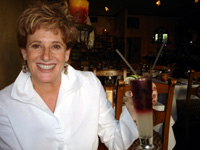 LA JOLLA, California—How many times can a restaurant reinvent itself? In my opinion, as many times as it takes to get it right. With the opening of Whisknladle (formerly Fresh[er]) still conveniently located on Wall StREET. in La Jolla, owner Arturo Kassel has gotten it right – again! But, with this cozy, stylish neighborhood restaurant, partner Chef Ryan Johnston has brought to us his version of European home-style cooking that he says, “satisfies the belly and satiates the soul.” I couldn’t agree more. LA JOLLA, California—How many times can a restaurant reinvent itself? In my opinion, as many times as it takes to get it right. With the opening of Whisknladle (formerly Fresh[er]) still conveniently located on Wall StREET. in La Jolla, owner Arturo Kassel has gotten it right – again! But, with this cozy, stylish neighborhood restaurant, partner Chef Ryan Johnston has brought to us his version of European home-style cooking that he says, “satisfies the belly and satiates the soul.” I couldn’t agree more.
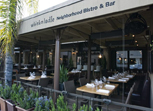 Together Kassel and Johnston have created a very affordable and modest menu that is anything BUT modest in presentation flavor, and taste. Each dish offered at Whisknladle takes an old-world approach in the kitchen, including the oven-to-table olive and rosemary artisan bread (of which I couldn’t get enough), meats, pasta, even ice cream. Everything is baked, churned, smoked, aged, pickled, and cured right there on the premises. “We wanted to create a place that was not only truly unique, but that was an extension of our personalities. When people walk through our doors, they can expect the finest quality food…Whisknladle is our dream come true,” said Arturo Kassel, a La Jolla native and alumnus of The Jewish Academy and La Jolla Country Day School who was weaned on produce grown in the organic farms in San Diego County. Two of them, he and Johnston use to purchase their ingredients – Chino Farms and La Milpa. Together Kassel and Johnston have created a very affordable and modest menu that is anything BUT modest in presentation flavor, and taste. Each dish offered at Whisknladle takes an old-world approach in the kitchen, including the oven-to-table olive and rosemary artisan bread (of which I couldn’t get enough), meats, pasta, even ice cream. Everything is baked, churned, smoked, aged, pickled, and cured right there on the premises. “We wanted to create a place that was not only truly unique, but that was an extension of our personalities. When people walk through our doors, they can expect the finest quality food…Whisknladle is our dream come true,” said Arturo Kassel, a La Jolla native and alumnus of The Jewish Academy and La Jolla Country Day School who was weaned on produce grown in the organic farms in San Diego County. Two of them, he and Johnston use to purchase their ingredients – Chino Farms and La Milpa.
One organic ingredient with which Johnston uses in his baby carrot marinade is espelette, a French chili pepper that has replaced black pepper in Basque cuisine. The taste is a subtle finish and memorable on the melt-in-the-mouth Braised Short Ribs ($25) served on a bed of pureed polenta. I asked Dev, the house manager, to consider gift packaging these carrots. I would have bought a dozen!
Harissa is another intriguing ingredient Johnston uses to stimulate the palate in his Brick Chicken preparation ($21) accompanied by saffron risotto and pea vines. Other larger dishes include a Niman Ranch Hangar Steak au poive and fries ($26) and a Vegetable Tagine (stew) Bulgar Wheat Pilaf ($17) simmered in lemons, garlic, cinnamon, cumin, and ginger. My companion and I were quite impressed with the Asparagus Soup ($9) that surprisingly was a vegetarian preparation and a favorite of other patrons (who happen to be members of my temple!) we spoke with before leaving. This group of very happy and satisfied eaters also raved about the Beet and Tangerine Salad ($12). We enjoyed a 2003 Scion from the Robert Young Estate Winery in Sonoma’s spectacular Alexander Valley ($80/bottle), a stunning, full-bodied Cabernet Sauvignon that ranks amongst my favorite of wines.
Besides the back-to-basics, honest and fresh food approach, what makes Whisknladle an eatery I will return to many times, is the service; our charming and knowledgeable waiter, Jeremy, was fist-rate! Not hovering but attentive, his timing of serving each dish was unblemished; more impressive was his ability to deconstruct the parts of each dish. Never once did he have to run to Chef Johnston to answer my many questions. Indeed, it is rare in this town to be served by someone who combines enthusiasm for the dining experience with the understanding of what makes food fascinating and fun.
Whisknladle features private dining, off-site catering, and an after-hours lounge with live music and a late-night menu until 1:30am on Friday and Saturday nights. Lunch is served daily; Brunch is served on Saturday and Sunday from 11:30-3:00pm. Sunset service with cocktails and light snacks is from 3:00-5:00pm. Dinner is served from 5:00-9:00pm Sunday-Thursday and until 10:00pm on Friday and Saturday.
Whisknladle is located in La Jolla at 1044 Wall Street (between Gerard and Herschel). For reservations, call (858) 551.7575.

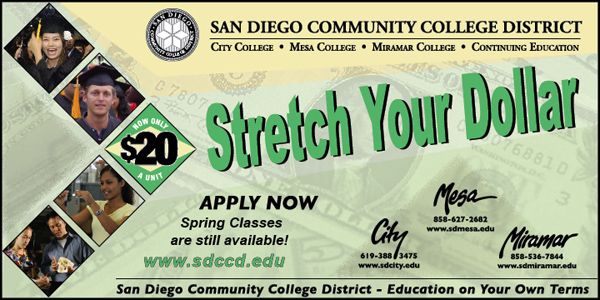

SAN DIEGO JEWISH WORLD THE WEEK IN REVIEW
Shoshana Bryen in Washington DC: The Angelina Jolie report on Iraq progress
Peter Garas in Canberra, Australia: No protests over gas cutoff to Ukraine?
Sheila Orysiek in San Diego: Mitzvah equation: difficult equals better?
Ira Sharkansky in Jerusalem: Israel's response in Gaza: long in coming
Judy Lash Balint in Jerusalem: Filmmaker Laura Bialis describes "Only thirty-six hours in Sderot."
Shoshana Bryen in Washington, D.C.: Obama and McCain debate Al Qaeda
Carol Davis in San Diego: Tick, Tick...BOOM at Stone Soup in S.D.
Rabbi Baruch Lederman in San Diego: There is no tempest in this coffee pot
Rabbi Leonard Rosenthal in San Diego: Even Mishkan's building awaits Shabbat
Ira Sharkansky in Jerusalem: Kicking up a fuss over Jonathan's sexuality
Plus Letters to the editor
Carol Davis in Solana Beach, California: A Shayna Maidel: a post-Holocaust story
Peter Garas in Canberra, Australia: Friendship between Muslims and the West would be beneficial for humanity, globe
Yvonne Greenberg in San Diego: Personality in the News—Why San Diego Jewish filmgoers re-Joyce
Shoshana Bryen in Washington, D.C.: 'Human chain' dissolves in rain
Peter Garas in Canberra, Australia: Daily news discourages potential olim
Ira Sharkansky in Jerusalem: Gazans' protest on Israel border fizzles
Judy Lash Balint in Jerusalem: Aliya fails to keep up with out-migration
J. Zel Lurie in Delray Beach, Florida: Hadassah celebrates Israel’s 60th birthday with new stem cell research and therapy
Dorothea Shefer-Vanson in Mevasseret Zion, Israel: Turning a rubbish dump into parkland
Link to previous editions
< BACK TO TOP
|
|
